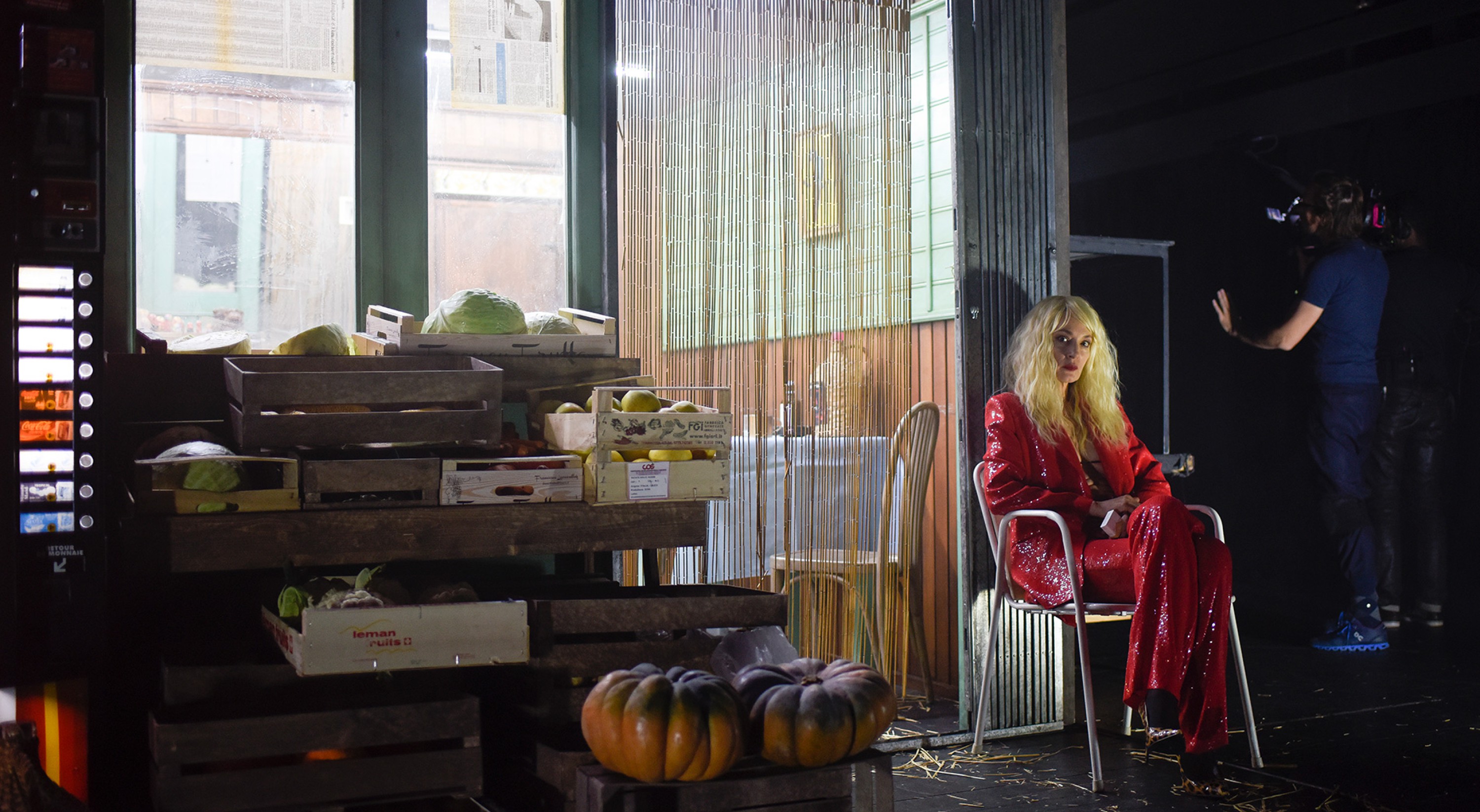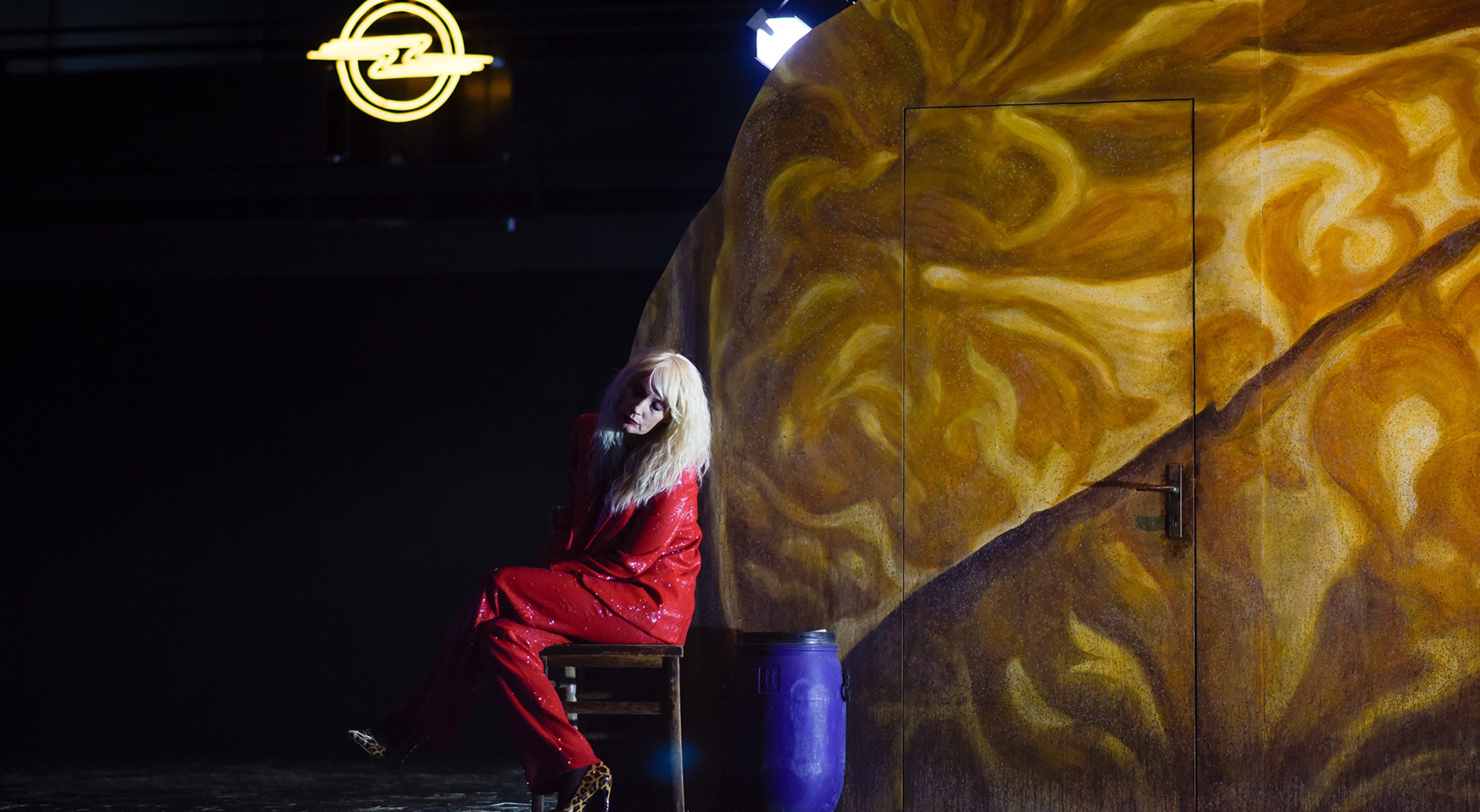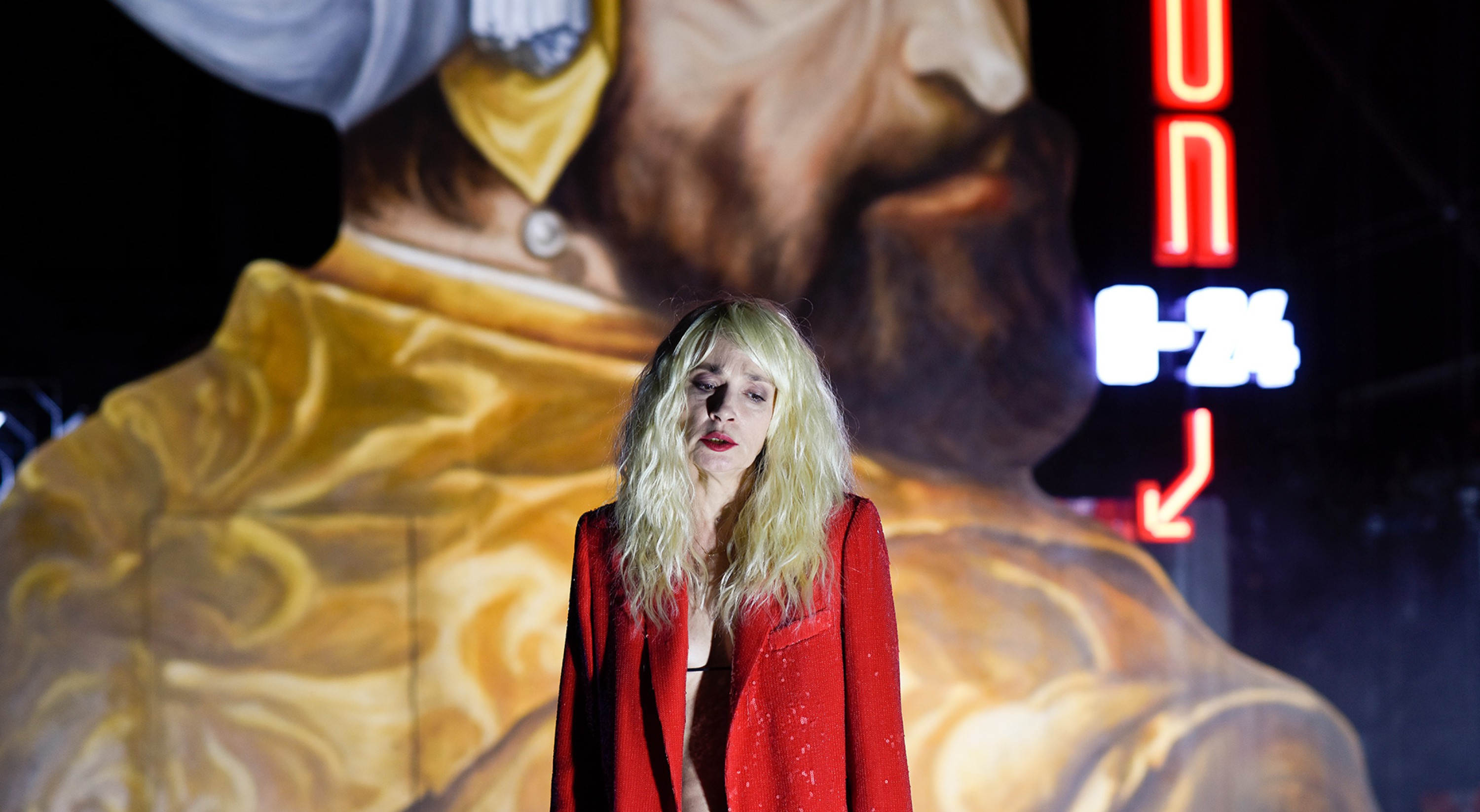Frank Castorf
Bajazet En considérant « Le Théâtre et la Peste » based on Jean Racine and Antonin Artaud
decemberdec 4 – 14
Directed by Frank Castorf
With Jeanne Balibar, Jean-Damien Barbin, Adama Diop, Mounir Margoum, Claire Sermonne, and a live camera
Texts, Jean Racine, and Antonin Artaud
Stage design, Aleksandar Denic
Costumes, Adriana Braga Peretzki
Music, William Minke
Video, Andreas Deinert
Lighting, Lothar Baumgarte
Costumes assistant, Sabrina Bosshard
Direction assistant, Hanna Lasserre
Direction trainees, Camille Logoz, Camille Roduit
Scenography trainees, Maude Bovey
Produced by Théâtre Vidy-Lausanne ; MC93 – Maison de la Culture de Seine Saint-Denis
Coproduced by ExtraPôle Sud-PACA ; Grand Théâtre de Provence (Aix-en-Provence) with support from Friche la Belle de Mai (Marseilles) ; Théâtre National de Strasbourg ; Maillon – Théâtre de Strasbourg – Scène européenne ; Tandem scène nationale (Arras-Douai) ; Bonlieu scène nationale Annecy ; TNA – Teatro Cervantes – Teatro Nacional Argentino (Buenos Aires) ; and Festival d’Automne à Paris
In association with MC93 – Maison de la Culture de Seine Saint-Denis ; and Festival d’Automne à Paris
This show is supported by the PEPS project within the framework of the Interreg France-Suisse 2014-2020 programme promoting cross-border cooperation in Europe // With support from Adami
First performed on the 30th October 2019 at Théâtre de Vidy-Lausanne
In partnership with France Inter
Frank Castorf, one of the emblematic figures of German theatre, revisits, in French, Jean Racine’s Bajazet. Tackling this classical author’s work is a challenge few non-French speaking artists have taken up. This production sees Castorf confronting it with Antonin Artaud’s famous essay, Theatre and The Plague, the first chapter of Theatre and its Double.
In his majestic adaptations of Dostoyevsky, Bulgakov, and Celine, for example, Frank Castorf has brought us theatre which serves as a proof of liberty in itself, and which does not shy away from human weakness or cowardice, nor its contradictions. By combining Racine and Artaud, he brings to light what these two French poets have in common: the spoken word, theatre’s anchorage point, as the crucial place where the burning heart of their works is played out. This, of course, has much to do with Castorf’s own uncompromising, unsentimental brand of theatre. The spoken word is the arm with which Racine’s heroes untangle themselves from the constraints of the straightjacket around them, allowing them to follow their true desires. For Artaud, it was via the reinvention of language that he could free himself from what birth, society and language had imposed on him, enabling him to be reborn as his true self, the ultimate goal of his life and his incandescent art.
Bajazet plays out in the huis clos of Constantinople’s seraglio. The Sultan himself is absent. For each character, favourite, pretender, brother or vizier, true love comes into contradiction with political ambition, and living out one’s passions to the full is synonymous with death. The tragedy exposes man’s altogether fallible spirit and the impossibility of pure, unadulterated feelings. By adapting Racine, Castorf transports us from one century to another, brings two major authors together and wakes up our interior demons.
––––––
Estimated running time : 4h interval included
Performance with English subtitles on 6 and 8 December
In the same place


